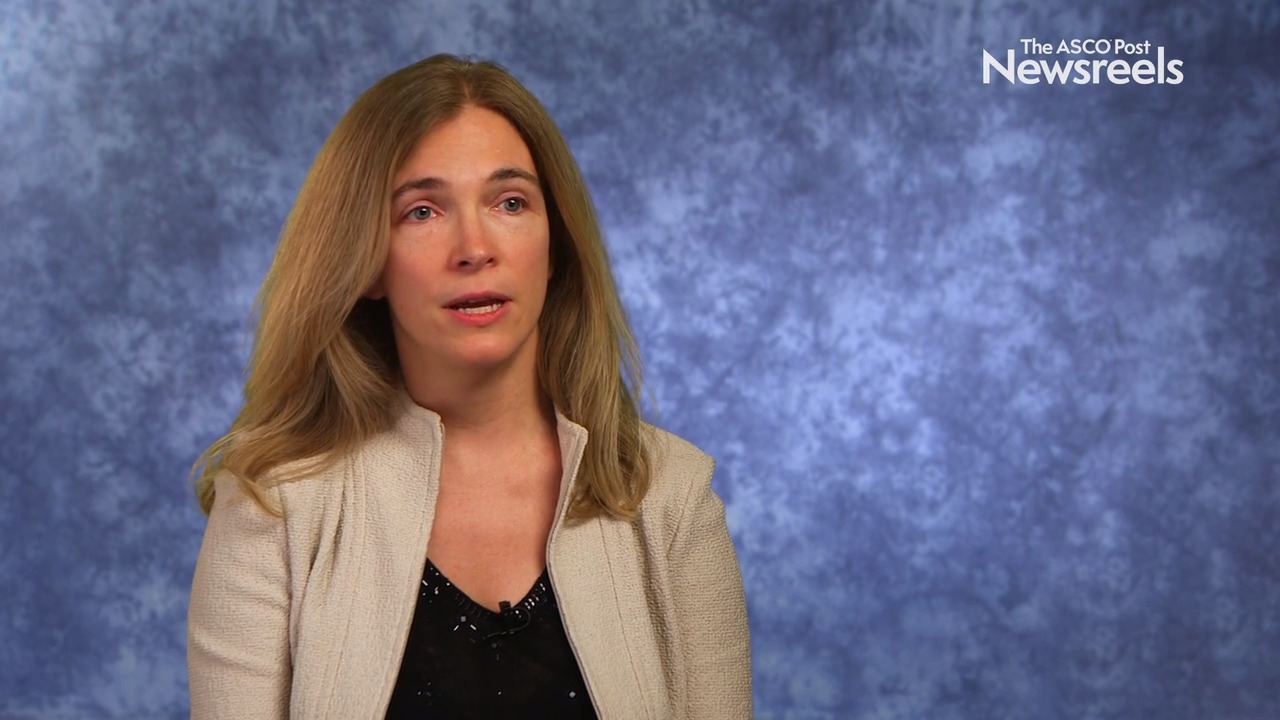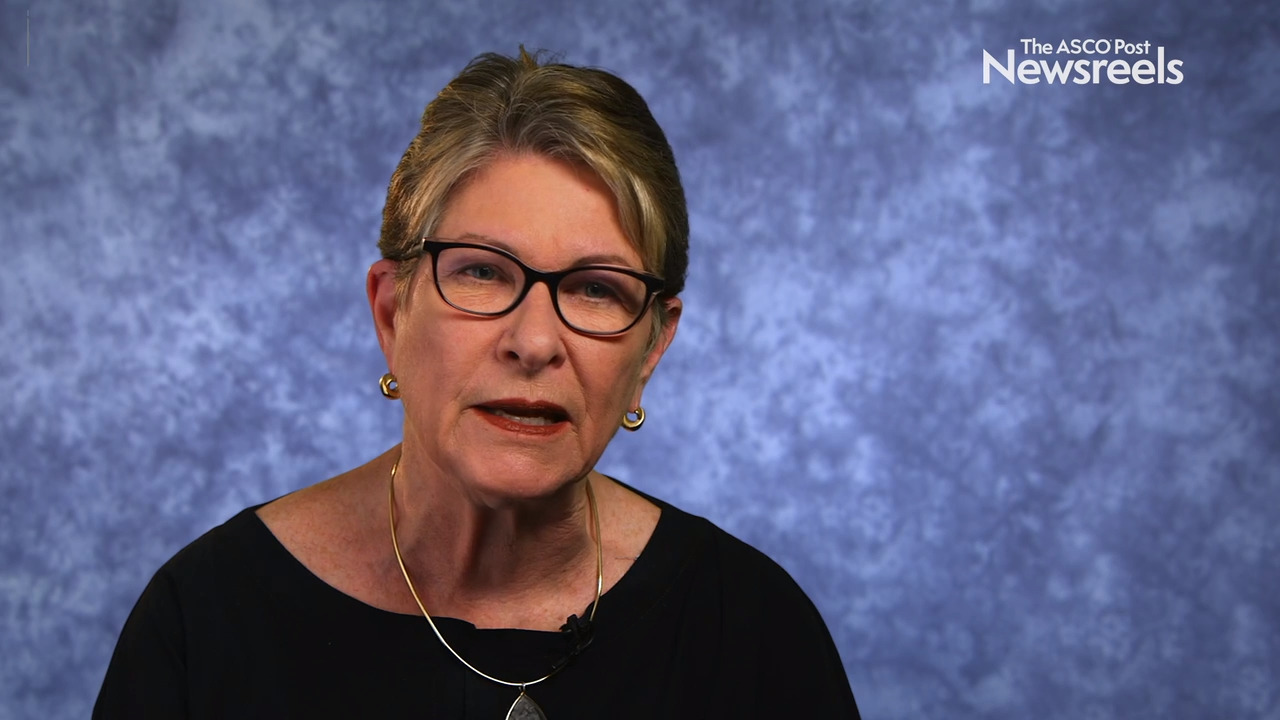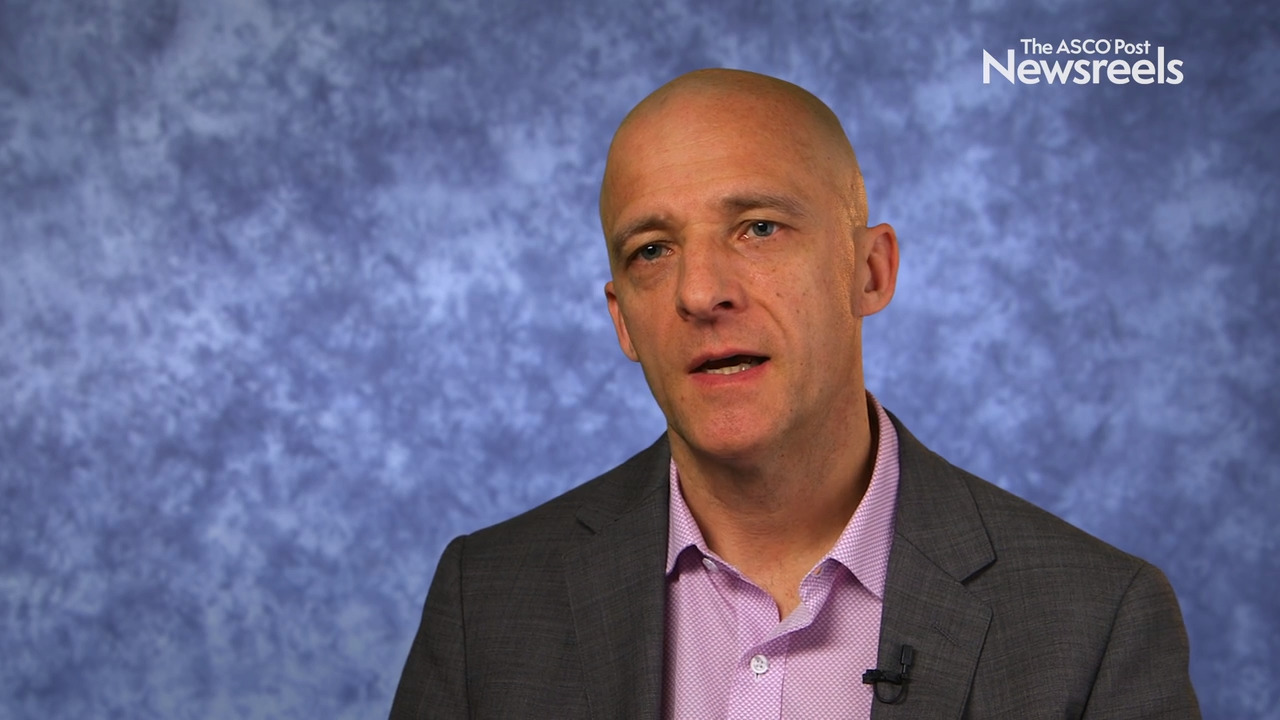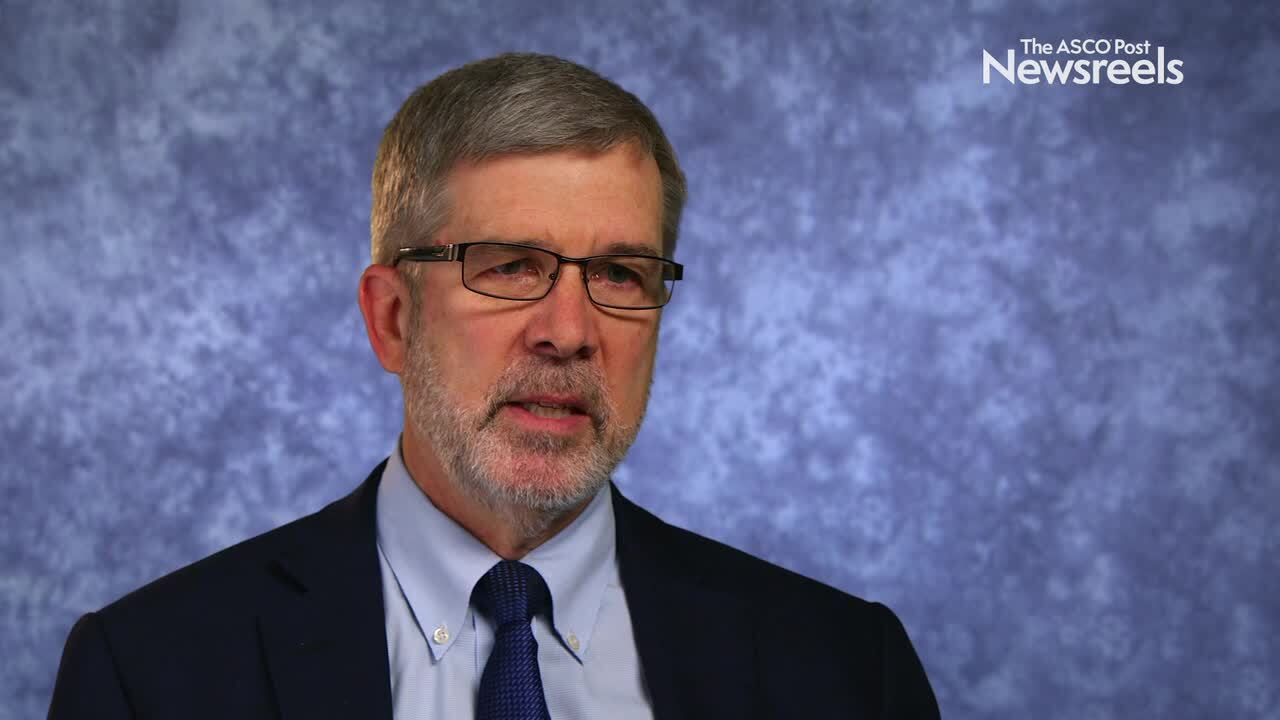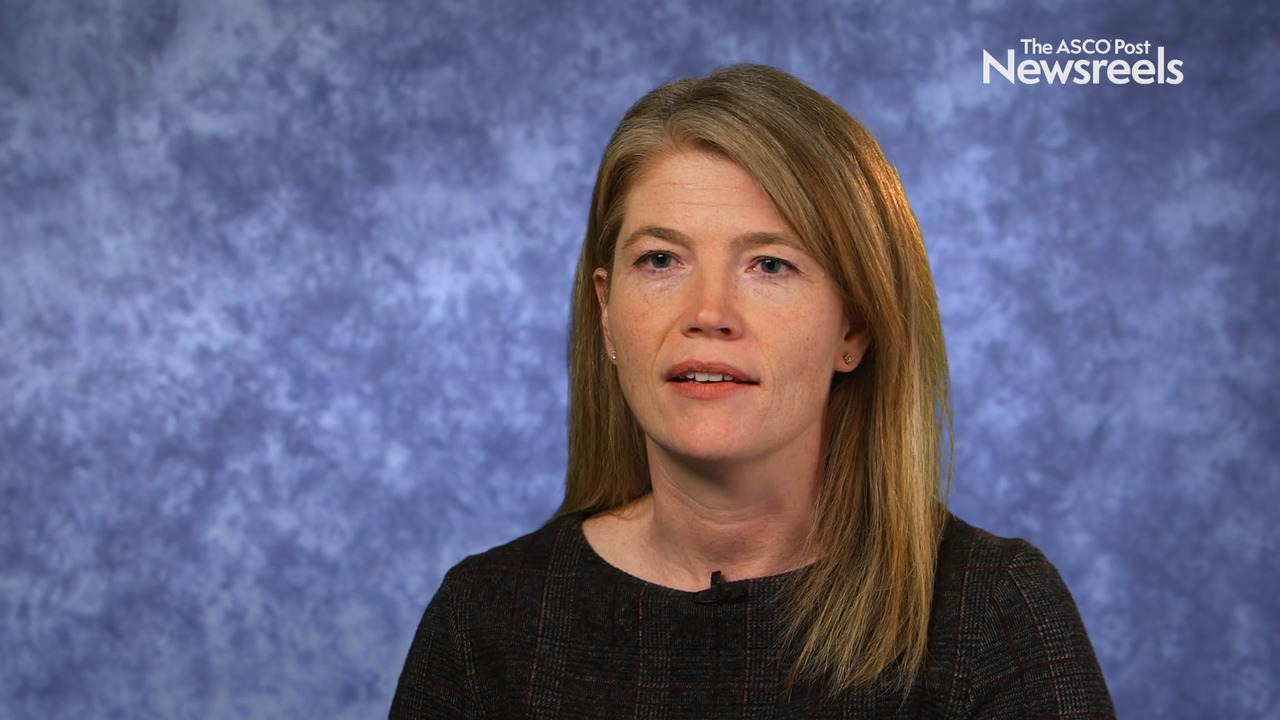William J. Gradishar, MD, on HR-Positive, HER2-Negative Advanced Breast Cancer: NCCN Guidelines Updates
NCCN Annual Conference 2019
William J. Gradishar, MD, of the Robert H. Lurie Comprehensive Cancer Center of Northwestern University, discusses evidence-based first-line treatment options for patients with advanced hormone receptor–positive, HER2-negative breast cancer and toxicities associated with the various therapeutic options.
Chrysalyne Schmults, MD, of Brigham and Women’s Hospital, discusses treatment strategies in these nonmelanoma skin cancers, including surgery, forthcoming staging systems, and ongoing trials combining adjuvant radiotherapy and immunotherapy.
Margaret A. Tempero, MD, of the UCSF Helen Diller Family Comprehensive Cancer Center, discusses new adjuvant therapy options for patients with pancreatic cancer, and germline testing, including testing for microsatellite instability/mismatch repair genes as well as molecular analysis of all tumors.
Eric Jonasch, MD, of The University of Texas MD Anderson Cancer Center, discusses major findings over the past 12 months in kidney cancer, including combination immunotherapies and trends in surgical oncology.
James L. Mohler, MD, of the Roswell Park Comprehensive Cancer Center, discusses updated recommendations in prostate cancer: more specificity for family history and genomic sequencing, as well as the evolving uses of androgen-deprivation therapy.
Melinda L. Telli, MD, of the Stanford Cancer Institute, discusses the various systemic therapies for patients with early-stage hormone receptor–positive, HER2-negative disease.
